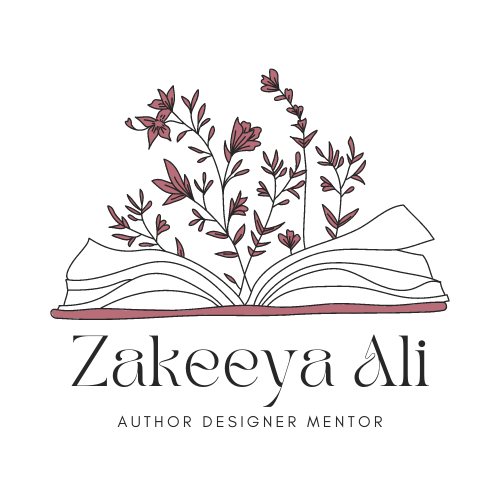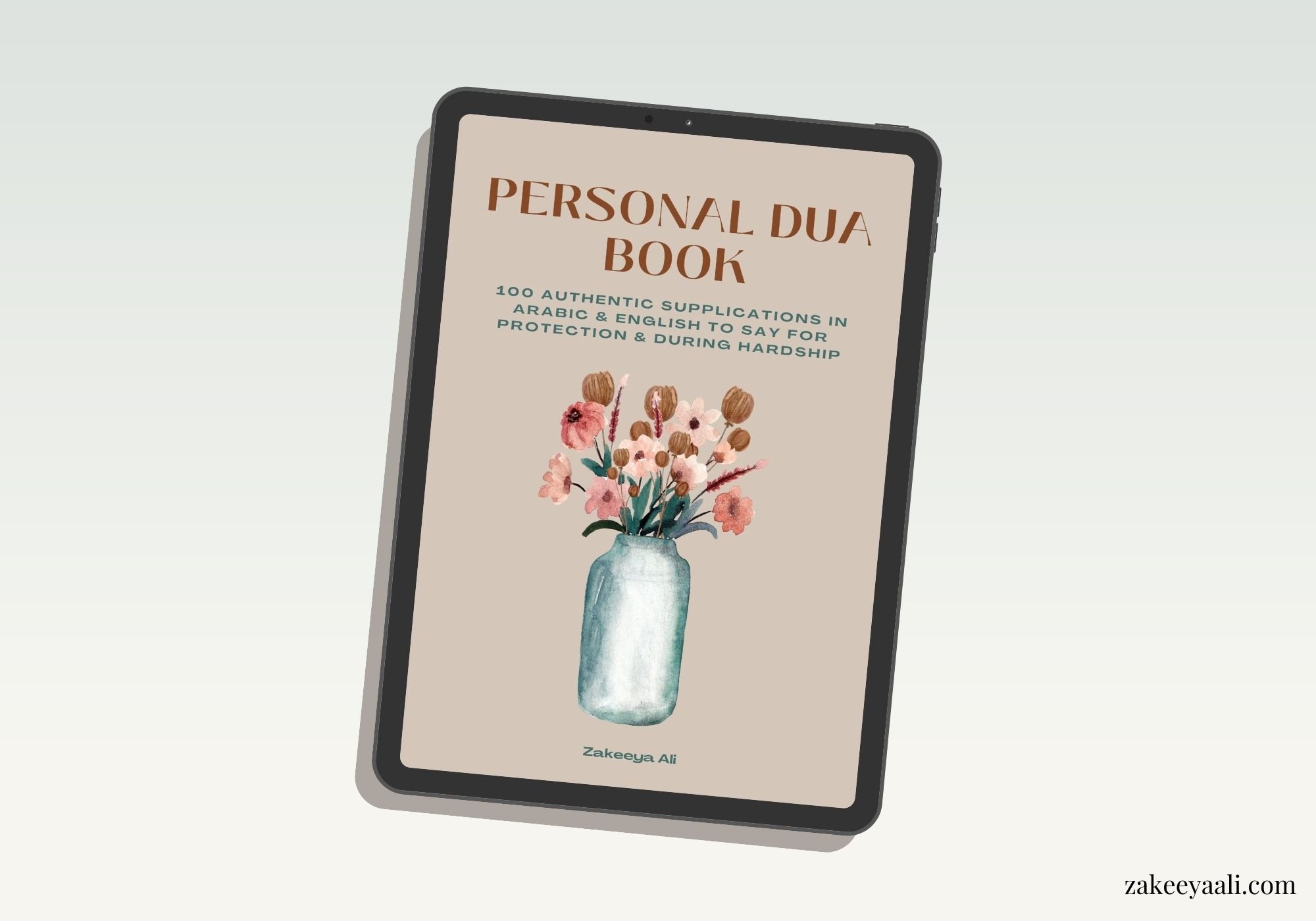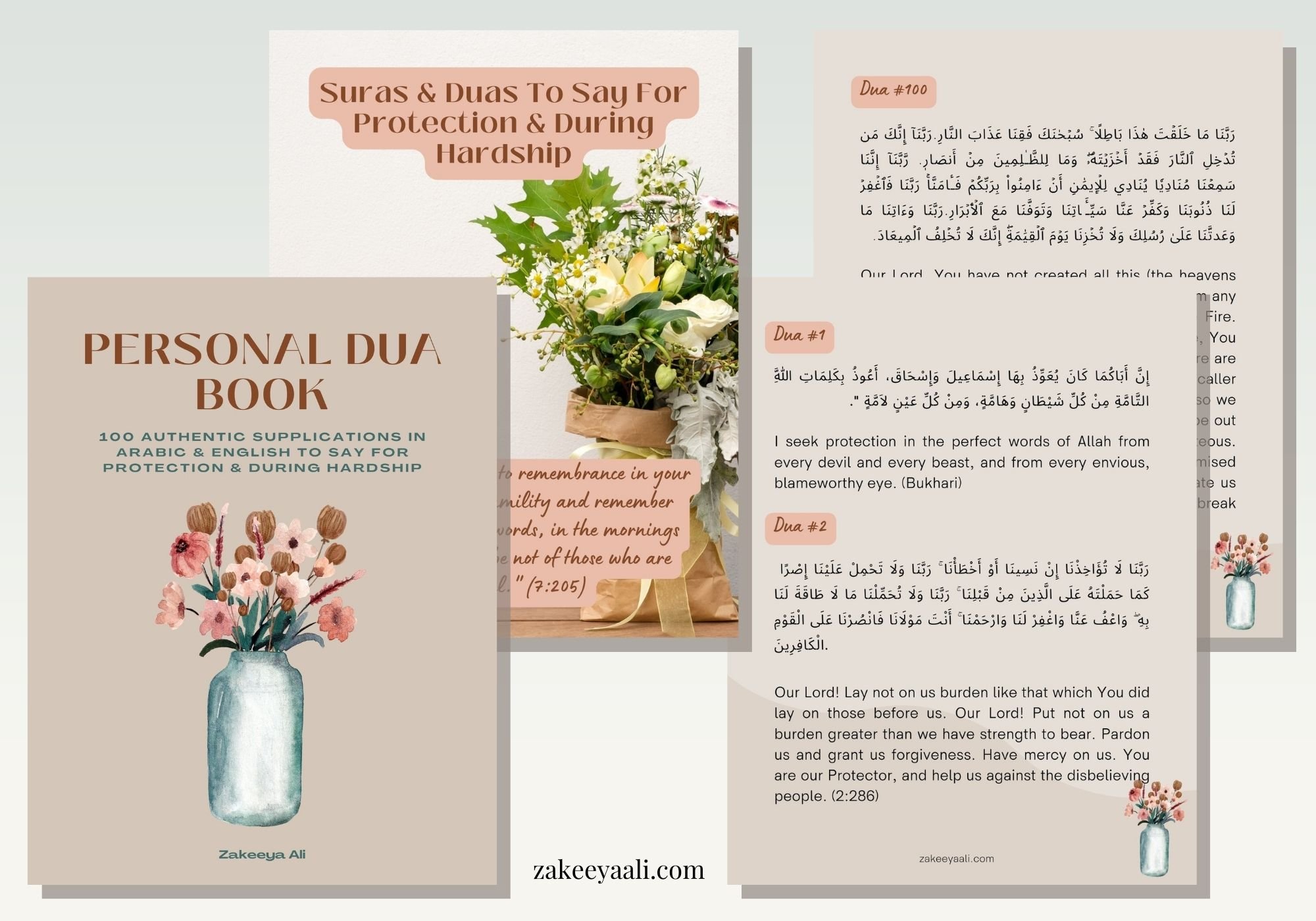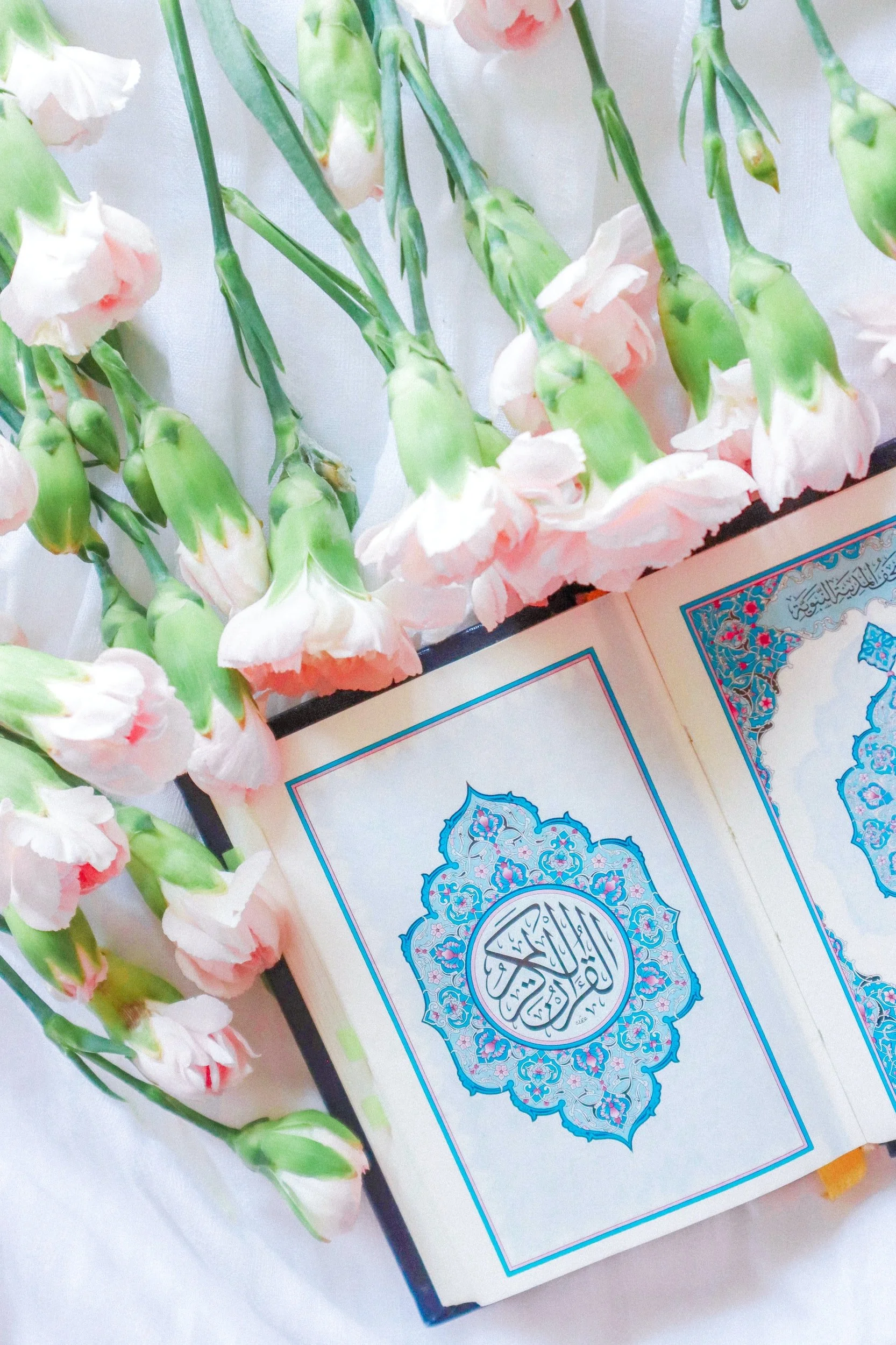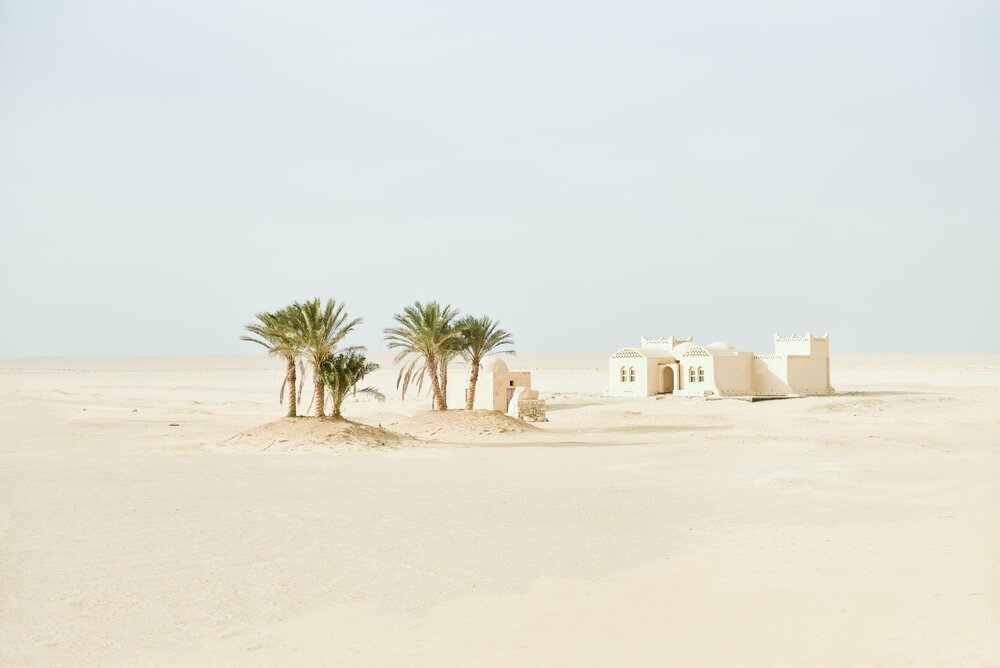How to Support Our Oppressed Ummah in Crisis
As a result of seeing our ummah suffering in Palestine and in a number of other Muslim countries, many of us are experiencing a sense of helplessness regarding what we can do. The majority of people, particularly us women, are unable to do anything that can directly assist, and as a result, we are experiencing feelings of hopelessness and guilt.
Nevertheless, there are a few indirect things that we can do to assist our fellow brothers and sisters who are being oppressed in the worst ways. It may seem small and that it won’t make a dent, but it more important than we know.
How to Support Our Oppressed Ummah
1. The Power of Dua
Dua, dua, dua, especially during auspicious times such as Fridays between dhur and asr, when traveling, when it is raining, and so on, are extremely powerful. Our collective duas can help so many of the oppressed, so don't dismiss it as insignificant and continue to make as much dua as you can for the ummah.
You can find a complete list of Prophetic duas to say HERE.
2. The Effect of Boycotts
Engage in a boycott of brands and businesses that actively support tyrants in order to make them lose profit. I've heard some Muslims say boycotts are pointless and unnecessary, but I disagree because I've seen how companies' profits are wavering, and while it may be small, it's something!
We must always take a stand against any business that supports oppression, especially genocide, or else we become people without scruples. I believe it is the least we can do, even if it is just to be reminded of why we are boycotting and for whom we are doing it. Of course, we should do what we can in our situation, so if you absolutely need a specific product to survive, then Allah Knows Best
The following is a list of companies and products that support Israel and the genocide, which is regularly updated HERE.
Below is a visual representation of some of the companies and brands mentioned in the preceding list that we can stop supporting and try to find alternatives for, not just temporarily but from hereon.
3. Educate Our Children
The good step is to teach our children about Islamic history, including what happened to previous tyrants and oppressors, and how they fell. We should also enlighten our children about the history of tyranny in Palestine and how the current situation arose. The following are notable resources:
The Children of Isra’il - Who are They? A video by Shaykh Belel Assaad
The video explains the Bani Isra'il, a term often mentioned in the Quran, and played a significant role in shaping the course of history. In it, Shaykh Belel Assaad discuss who they are, their covenant with Allah, and their downfall. He also touches upon current issues related to the state of Israel and its impact on the region.
Palestine and Al-Aqsa Resources by Life With Allah
This content is suitable for secondary school students, madrassahs, and adults. It is an eye-opening presentation, exploring what life is like for Palestinians, reviewing the virtues of al-Masjid al-Aqsa, and learning about the current crisis in Gaza.
Access this content HERE.
The Palestine Academy Lessons
The TPA educates the digital space about Palestine to reclaim the narrative. You can learn about Palestine’s history and decolonization movement.
Access the lessons HERE.
4. Be Mindful and Reflect
At this time especially, we should avoid throwing lavish feasts and be mindful of wasting resources. In comparison to a significant number of our brothers and sisters in other countries, our barakah is abundant. As a result, we can refrain from being extravagant and holding elaborate gatherings out of respect for those who are suffering. Instead, we can reflect on our deeds and direct our extra time and money toward charitable causes that assist to those in greater need.
5. Express Shukr
Recognizing our abundant blessings, being grateful for them, and making shukr to Allah SWT for having so much will not only help us deal with feeling guilty about them, but will also keep us humble. I know many of us feel terrible for having so many comforts in life, as well as so much resources and sustenance, that we become physically ill when we compare our lives to the lives of those oppressed. It becomes a good way to live and pass on these habits to our children if we constantly express our gratitude to our Lord and pray for the less fortunate.
6. Be Aware and Vigilant
Another step is to take note of the people we follow and the beliefs they hold about the ummah. We must make a commitment to never promote or support those who advocate for tyranny and genocide in any form, and we should write or speak out in condemnation of the injustices they tolerate and the excuses they make for the oppressors. The Prophet SAW said:
“Whoever among you sees an evil action, then let him change it with his hand [by taking action]; if he cannot, then with his tongue [by speaking out]; and if he cannot, then with his heart – and that is the weakest of faith.” (Sahih Muslim)
Pin This Post on Your Pinterest Board!
7. Become Informed About the Signs
To avoid feeling hopeless and depressed, we can read up on Islamic eschatology, which is a field of study in Islam concerning future events that would occur in the end times. It is primarily based on Quranic and Sunnah sources and aspects of this field of study include the signs of the end times, the destruction of the universe, and the Day of Judgment.
The knowledge that Allah SWT has a plan and that our understanding of His plan is limited, will keep us optimistic. Having the awareness that certain events will occur in order for specific circumstances to take place leading to the end of human history, will become clear.
8. Refrain From Falling into Despair
Avoid falling into a state of depression and complaining about life's circumstances because doing so is neither helpful nor useful. Rather than being a negative example to those around us, we should be a positive voice of taqwa for those who are drowning in their sorrows. We can treat others with extra kindness, especially our close family, relatives, and friends, and aim for being a good example with our words and actions online and offline.
9. Increase Worship
We can increase the amount of ibadah we perform, such as reciting the Quran more frequently, praying nafl salah such as tahajjud and salatul haja, and performing dhikr and salawaat, to be closer to Allah SWT and gain more of His favor. Furthermore, it can facilitate the acceptance of our duas in a more expedient manner, which will be beneficial for the ummah.
You may also like to read the article: In Defense of Our Religion
10. Don’t Forget to Think of the Entire Ummah
What is happening in Palestine is atrocious and unfathomably cruel, but other countries, such as Syria, North Sudan, Myanmar, Somalia, Yemen, South Sudan, Ethiopia, Afghanistan, Iraq, Morocco, Rohingya, and even the Muslims in Russia, Ukraine, Venezuela, Sahel are also suffering at the hands of oppressor or some kind of crisis. In our duas and efforts, we must remember to include all of the ummah who are suffering. Many of the atrocities taking place in Palestine are also occurring in other countries, and we should not ignore their suffering because it is smaller in scale or not being highlighted eough. We should stay informed and use our platforms to enlighten others about all that's occurring around the world.
Dua for the Oppressed
O Allah, help and protect the people of Palestine. O Allah, ease their pain and suffering. O Allah, bestower of Mercy, bestow your mercy on them. O Allah, open people's hearts to give in this time of crisis. O Allah, help those who are in need, wherever they may be. Ameen!
In times of calamity, we are also advised to recite the following general Du’as from the Qur’an:
حَسْبُنَا اللَّهُ وَنِعْمَ الْوَكِيلُ
Allah is sufficient for us, and He is the best disposer of affairs. (3:173)
Hasbun Allahu wa ni’mal wakeel
Another is:
إِنَّا لِلَّهِ وَإِنَّا إِلَيْهِ رَاجِعُونَ
Indeed, to Allah we belong and to Him we shall return. (2:156)
Inna lillahi wa inna ilayhi raji’oon
Palestine in the Quran
The following Qur’anic verses refer to Palestine:
(2:58) “And [recall] when We said, “Enter this city and eat from it wherever you will in [ease and] abundance, and enter the gate bowing humbly and say, ‘Relieve us of our burdens.’ We will [then] forgive your sins for you, and We will increase the doers of good [in goodness and reward].”– This verse was addressed to Bani Israeel.
(21:71) “And We delivered him [Ibrahim] and Lut to the land which We had blessed for the worlds”
(23:50) “And We made the son of Mary and his mother a sign and sheltered them within a lofty place of lasting restfulness and unsullied springs”
(5:21) “O my people, enter the Holy Land which Allah has assigned to you and do not turn back [from fighting in Allah ‘s cause] and [thus] become losers.” – These are the words of the Prophet Musa (AS).
(10:93) “And We had certainty settled the Children of Israel in a most goodly abode..” – this is said to refers to Shaam and Jerusalem
(21:81) “And to Sulaymaan (Solomon) [We subjected] the wind, blowing forcefully, proceeding by his command toward the land which We had blessed. And We are ever, of all things, Knowing” – The Kingdom of Sulaymaan (AS) was in present-day Palestine, and had Al-Quds (Jerusalem) as its capital.
(34:18) “And We placed between them and the cities which We had blessed [many] visible cities. And We determined between them the [distances of] journey, [saying], “Travel between them by night or day in safety.” – The reference to the blessed cities here refer to the cities of Shaam including Al-Quds.
(38:21-22) “And has there come to you the news of the adversaries, when they climbed over the wall of [his] prayer chamber – When they entered upon David and he was alarmed by them? They said, “Fear not. [We are] two adversaries, one of whom has wronged the other, so judge between us with truth and do not exceed [it] and guide us to the sound path” – The Mihrab mentioned above, was situated within the Masjid Al-Aqsa Compound.
(3:39) “So the angels called him while he was standing in prayer in the chamber, “Indeed, Allah gives you good tidings of Yahya (John), confirming a word from Allah and [who will be] honorable, abstaining [from women], and a prophet from among the righteous.” – Sayyidina Zakariyya (AS), who was an Imam of Masjid Al-Aqsa, beseeched Allah (SWT) to be blessed with a son, despite his advanced age. Allah (SWT) responded to his fervent Du’as, and the glad tidings of his offspring was conveyed to him as he stood at his Mihrab inside Masjid Al-Aqsa.
(7:161) “And [mention, O Muhammad], when it was said to them, “Dwell in this city and eat from it wherever you will and say, ‘Relieve us of our burdens,’ and enter the gate bowing humbly; We will [then] forgive you your sins. We will increase the doers of good [in goodness and reward].” – Reference here is to the City of Al-Quds
Salam, I’m Zakeeya!
I believe that making our homes a safe haven for our families, as well as being a wife and mother, brings us great blessings, contentment, and benefits to society as a whole. Since 2011, I've been dedicated to assisting Muslimas in finding tranquility in their roles, taking better care of themselves, and achieving inner peace. Our journey in this world is not an easy one, but I pray the tools and guidance I offer will help you face life's challenges with more gratitude and mindfulness. Join me as I share wifehood, motherhood, homemaking, and lifestyle solutions that make life more fulfilling for you as a woman! Read more about me here.
Do You Want to Instill Your Daily Dose of Dua?
Order my handy dua ebooks, which are available in an Arabic/English or English only version, and contain 100 authentic duas to say for protection and during hardship.
